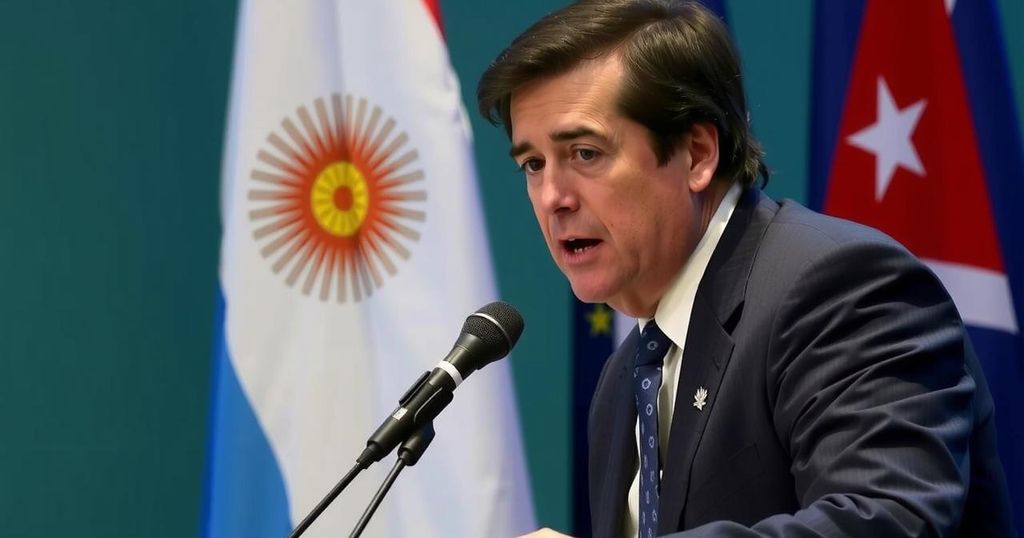Argentina’s Milei Dismisses Foreign Minister Following UN Vote to End U.S. Embargo on Cuba

Argentina’s President Javier Milei has dismissed Foreign Minister Diana Mondino after the country voted in favor of lifting the U.S. embargo on Cuba at the UN. This voting aligns Argentina with 186 other countries but contrasts its historical stance and existing alliances. Gerardo Werthein, previously the ambassador to the U.S., has been appointed as the new foreign minister amidst diplomatic tensions.
In a significant diplomatic move, Argentina’s President Javier Milei has dismissed Foreign Minister Diana Mondino following the nation’s vote at the United Nations in support of a resolution aimed at lifting the United States’ embargo on Cuba, a policy that has been in place for over six decades. This decision marks a notable divergence from the traditional alignment with both Washington and Tel Aviv, as the United States and Israel were the only nations to oppose the resolution, while one other country, Moldova, abstained. Presidential spokesman Manuel Adorni announced the appointment of Gerardo Werthein as the new Foreign Minister, who previously served as Argentina’s ambassador to the United States. The vote, which saw Argentina joining 186 other countries in favor of lifting the embargo, has raised questions about Argentina’s diplomatic strategy, especially considering its historical stance against the embargo. Following the dismissal of Mondino, President Milei indicated his commitment to a government that endorses democratic values, retweeting a statement from a lawmaker expressing pride in a government that does not support what she described as dictatorships. The decision to support the resolution may pose challenges for Argentina, as foreign ministry sources noted a tension between Argentina’s alliances and the need for support from Cuba and its allies in future discussions regarding Argentina’s sovereignty claims over the Falkland Islands, a British territory disputed by Argentina.
The embargo against Cuba has been a contentious issue in international relations since its establishment in 1962. The United States implemented the embargo in response to the Cuban revolution and the establishment of a communist government. It is a focal point of geopolitical discussions, and various countries have consistently voted in favor of lifting or condemning the embargo at the United Nations. Argentina’s foreign policy has historically leaned towards supporting Cuba’s government, creating a notable conflict with its current administration under President Javier Milei, who has expressed a desire to align more closely with Western powers like the U.S. and Israel. However, this recent vote suggests a recalibration of the country’s diplomatic relationships and voting patterns on international platforms.
In summary, President Javier Milei’s dismissal of Foreign Minister Diana Mondino following Argentina’s vote at the UN to lift the U.S. embargo on Cuba marks a notable shift in Argentina’s foreign policy. This action reflects a complex balancing act between national interests and international alliances, particularly concerning Argentina’s historical opposition to the embargo and its current partnerships. The appointment of Gerardo Werthein as the new foreign minister may signal an upcoming strategy that seeks to navigate these diplomatic waters more carefully.
Original Source: www.france24.com







